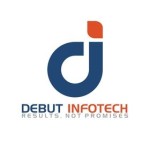Introduction:
Blockchain technology has gained widespread attention for its ability to revolutionize industries by offering a decentralized, transparent, and secure way of managing data and transactions. While popularized by cryptocurrencies like Bitcoin, the applications of blockchain extend far beyond digital currencies. One of the most transformative areas within the blockchain ecosystem is custom blockchain application development, a tailored approach to building blockchain solutions for specific business needs.
What is Custom Blockchain Application Development?
Custom blockchain application development involves creating personalized blockchain solutions from scratch or modifying existing blockchain platforms to fit an organization’s specific needs. While there are many pre-built blockchain frameworks like Ethereum, Hyperledger, and Corda, a custom-built solution allows businesses to design blockchain applications that are unique to their operational processes, security needs, and scalability requirements.
Why Opt for Custom Blockchain Development?
- Tailored Functionality: Unlike generic blockchain platforms, custom blockchain applications are designed to meet specific business goals and requirements. This ensures that the features, consensus mechanisms, security layers, and scalability of the blockchain match the organization’s demands.
- Enhanced Security: Blockchain technology is inherently secure due to its decentralized nature. However, different businesses may require varying degrees of security depending on the sensitivity of their data. Custom solutions can include additional encryption, consensus algorithms, and access controls to bolster security.
- Optimized Performance: Custom-built blockchain applications can be optimized for faster transactions, lower latency, and more efficient consensus mechanisms. This leads to improved performance, particularly in industries like finance or logistics, where speed and accuracy are crucial.
- Integration with Legacy Systems: Many businesses rely on existing legacy systems that manage their data and processes. A custom blockchain application can be built to seamlessly integrate with these systems, enabling smoother transitions and reducing operational disruptions.
- Long-term Scalability: By customizing the blockchain infrastructure, businesses can design a solution that can grow as their operations expand. This ensures the blockchain remains efficient and cost-effective even as the organization scales.
Use Cases for Custom Blockchain Applications
1. Supply Chain Management:
Blockchain’s transparency and immutability make it ideal for supply chain management. A custom blockchain solution allows companies to track products at every stage of the supply chain, ensuring authenticity, reducing fraud, and improving efficiency. Retailers and manufacturers can create decentralized systems that provide real-time updates on shipments, inventory levels, and product provenance.
2. Healthcare:
In healthcare, custom blockchain applications are used for securely managing patient data, medical records, and drug supply chains. With blockchain, patient data can be accessed and shared between different healthcare providers while maintaining privacy and security. This helps in reducing medical errors, ensuring better coordination of care, and combating counterfeit drugs.
3. Financial Services:
The financial industry benefits immensely from custom blockchain solutions that can facilitate fast and secure transactions, lower processing fees, and enhance compliance with regulations. Blockchain can streamline cross-border payments, enable transparent auditing, and improve security in online banking systems. Custom solutions also allow financial institutions to build private blockchains that cater to their specific needs, such as real-time settlements, tokenization of assets, and decentralized finance platforms.
4. Digital Identity Management:
Custom blockchain solutions are increasingly being adopted for digital identity management. These systems can securely store and verify individuals' identities, enabling secure access to online services, preventing identity theft, and facilitating efficient Know Your Customer processes. Blockchain's decentralization ensures that personal data remains in the control of the user rather than being stored in centralized databases prone to breaches.
5. Voting Systems:
Blockchain-based voting systems can revolutionize the way elections are conducted by providing secure, transparent, and tamper-proof voting processes. A custom blockchain application for voting ensures that only eligible voters can cast votes and that every vote is counted accurately without the risk of tampering or fraud.
Key Steps in Custom Blockchain Development
1. Requirement Analysis
The development process starts with a deep understanding of the business’s goals and requirements. The team analyzes the problems that need solving and identifies how blockchain technology can be applied. This phase often involves collaborating with stakeholders to ensure that the solution will align with the organization’s long-term objectives.
2. Choosing the Right Blockchain Framework
Based on the use case, developers choose a blockchain framework (like Ethereum, Hyperledger, or Corda) or decide to build a blockchain from scratch. The choice of the framework will depend on factors such as scalability, privacy, and the level of decentralization required.
3. Designing the Architecture
Next, the blockchain’s architecture is designed. This involves decisions regarding the consensus algorithm (e.g., Proof of Work, Proof of Stake), the type of blockchain (public, private, or consortium), and how the blockchain will interact with other systems and databases.
4. Development of Smart Contracts
Smart contracts are a core part of most blockchain applications, enabling automated execution of terms and conditions without the need for intermediaries. Developers write and deploy smart contracts that manage transactions, enforce rules, and automate processes.
5. Testing and Security
Blockchain applications are thoroughly tested to ensure they are free from bugs and vulnerabilities. Penetration testing, smart contract auditing, and performance evaluations are critical to ensure the blockchain is secure and performs efficiently under load.
6. Deployment and Maintenance
Once the blockchain application has been tested, it is deployed in the live environment. Continuous monitoring and maintenance are essential to ensure that the application runs smoothly and that updates or improvements can be made as needed.
Conclusion
Custom blockchain application development offers organizations the flexibility, security, and performance they need to leverage blockchain technology in a way that aligns with their specific business goals. Whether you are looking to improve your supply chain, secure patient data, streamline financial transactions, or build an innovative voting system, a tailored blockchain solution can be a game-changer for your organization’s growth and innovation. Investing in custom blockchain development ensures you get a scalable and efficient system designed to address your unique challenges, unlocking the full potential of blockchain technology in the process.





.jpg)
Comments